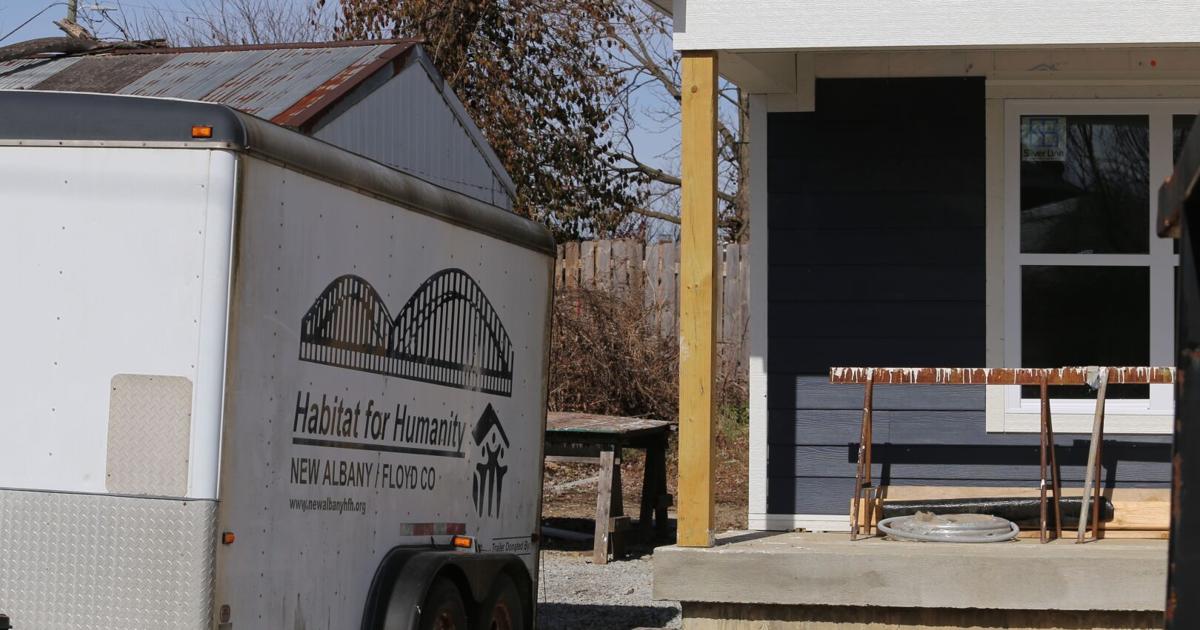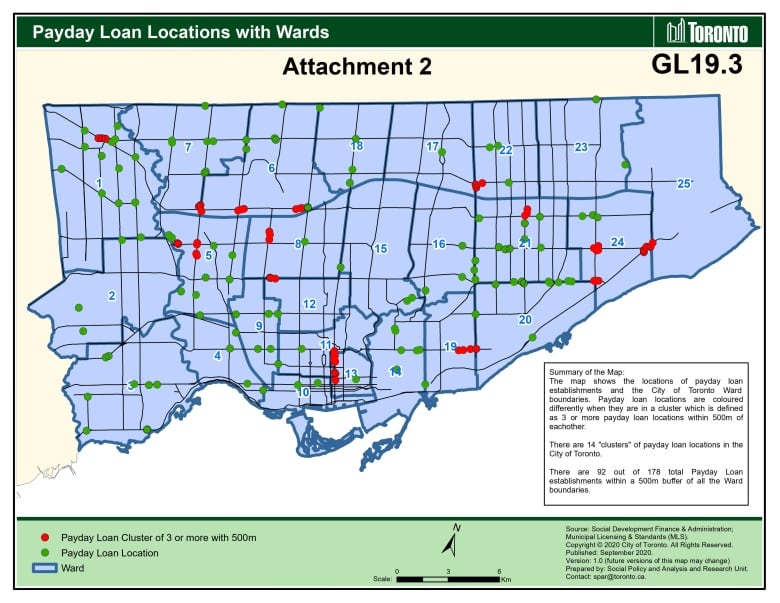SOUTH INDIANA — A bill passed by the Senate on Feb. 1 is being heavily criticized by a coalition of 97 groups across the state.
Senate Bill 352 seeks to make changes to Indiana’s Uniform Consumer Credit Code regarding supervised consumer loans. The changes have various stakeholders concerned about the effect on low-income people in the state.
Under the bill now headed to the House, loans made pursuant to the amendments will be exempt from the loan sharking laws set forth in the Indiana Code.
The code describes someone who commits loan sharking as “a person who, in exchange for the loan of property, knowingly or intentionally receives or undertakes to receive from another person any consideration, at a rate exceeding two times the specified rate”.
The offense is a Level 6 felony in the state and applies to all loans except payday loans, according to Andy Nielsen, senior policy analyst at the Indiana Community Action Poverty Institute.
Habitat for Humanity Indiana State Director Gina Leckron wondered how the state could justify exempting loan sharking laws for these specific consumer loans.
“We don’t think there is a need to change this existing law. Why can’t they operate within the confines of existing loan sharking law? And if they can’t, that raises a question: should it be allowed if it’s currently illegal? ” she said.
Nielsen said it’s no surprise that lenders want to be exempt from the law because it’s easier than lowering rates and fees.
“[The bill] sets an interest rate of 36% and sets an interest rate of 13% on the original loan balance, then also charges an underwriting fee of up to $50 above $400. On a 4 month loan of $400, the APR [annual percentage rate] could be 315%,” he said.
Habitat for Humanity and Indiana Community Action Poverty Institute are two of the 97 members of the Hoosiers for Responsible Lending coalition that oppose the bill.
Habitat for Humanity customers could be greatly affected by this bill, according to Leckron. The non-profit organization helps low-income people build their own homes and make a monthly mortgage payment at 0% interest.
“We think this really threatens not only our current owners, but also our candidate families. Because we’re dealing with people who are between 30% and 60% of the median income,” she said, “it feels like it’s directly targeting our core customers,” Leckron said.
Before clients are moved into the new homes, they take financial literacy classes, according to Leckron, where they learn about the downsides of these types of loans.
New Albany Floyd County Habitat for Humanity executive director Jerry Leonard said they try to provide all the resources their new owners need to make responsible financial decisions.
In financial literacy classes, Leonard said they teach clients how to create and track a budget. Leonard tries to follow up with clients once a month before they move in to see how the budgeting went.
For people living on a low income, however, a problem could set them back significantly in terms of their finances. Leonard gave several examples of individuals who could easily find themselves in the situation of paying rent or a mortgage or paying to have their car repaired.
Leckron said it may seem taboo or may be embarrassing for individuals to talk about their financial struggles with other people.
“It seems easier to go to those outside people, but when you do, if you don’t fully read this contract, it ends up being a devastating decision,” she said.
One of the justifications for this bill that Nielsen has heard is that it will increase competition in the installment loan market, although he disagrees that this will be an outcome.
“Subprime borrowers don’t have a lot of options. It’s not like they’re going to the market and shopping around like people who maybe have better credit… Whatever the market provides and those prices, that’s really their only option,” a- he declared.
When someone is desperate in an emergency or in need, people don’t think with the most reasonable set of assumptions, Nielsen said.
Because these borrowers often can’t afford to seek out different loans, Nielsen said lenders often charge the maximum allowed by law.
“When a buyer, or a borrower in this case, has only one option, you don’t expect competition to be really encouraged,” he said, “[Lenders] will charge until permitted by law, and we have data to back it up because that’s exactly what payday lenders are doing now.
“At [an] on an average basis, they charge up to the legal limit, like pennies,” Nielsen said.
The bill was referred to the House Financial Institutions and Insurance Committee for review before being introduced.
District 72 Rep. Ed Clere said that as the bill stands, he doesn’t see himself voting for it.
“These products are for people who are in financial difficulty and don’t have good options,” he said.
“I would like the discussion to turn to ways in which the state can help people move away from the cycle of high-interest debt and live paycheck to paycheck. I would like to see a focus on financial literacy, household budgeting, self-sufficiency, saving and investing, debt reduction, things that would help people break the cycle,” said continued Clere.
Nielsen also spoke about this cycle, noting that credit cannot be built without having credit.
“If you come from a household where you’ve never had someone who could co-sign a loan for you or co-sign a credit card, and you also have generational issues, which we see because we know loans are disproportionately offered in communities of color,” he said,
Because of how these loans disproportionately affect communities of color, Nielsen said there is a need for more racial equity in these policies.
“It’s a self-fulfilling cycle of good: Are borrowers risky because they don’t have good credit, or are they risky because the loans available to them are never affordable? “
 Google profits from ads promoting ‘instant’ money and loans delivered ‘faster than pizza’ despite pledging to protect users from ‘deceptive and harmful’ financial products. The adverts were shown to people in the UK who searched for terms such as “quick money now” and “need financial help” and directed users to companies offering high interest loans. […]]]>
Google profits from ads promoting ‘instant’ money and loans delivered ‘faster than pizza’ despite pledging to protect users from ‘deceptive and harmful’ financial products. The adverts were shown to people in the UK who searched for terms such as “quick money now” and “need financial help” and directed users to companies offering high interest loans. […]]]> MoneyMutual is a payday loan company that lets you borrow from $200 to $5,000 in as little as 24 hours. By filling out a simple form on MoneyMutualyou can instantly connect to 91 lenders to find the best deal in your area. Is MoneyMutual legit? How does Money Mutual work? Keep reading to find out […]]]>
MoneyMutual is a payday loan company that lets you borrow from $200 to $5,000 in as little as 24 hours. By filling out a simple form on MoneyMutualyou can instantly connect to 91 lenders to find the best deal in your area. Is MoneyMutual legit? How does Money Mutual work? Keep reading to find out […]]]>
 Most of the time, people get a payday loan because they can’t get quick financing anywhere else. Unfortunately, the financial situation can worsen if the borrower is unable to repay what he owes. Depending on how long it’s been since you received the loan, the lender could threaten to take legal action against you and […]]]>
Most of the time, people get a payday loan because they can’t get quick financing anywhere else. Unfortunately, the financial situation can worsen if the borrower is unable to repay what he owes. Depending on how long it’s been since you received the loan, the lender could threaten to take legal action against you and […]]]> When you’re low on cash between paychecks or have an unexpected financial emergency, a payday loan can be a tempting option to help you make ends meet or access cash quickly. However, these short-term loans, which are usually due on the day of your next payday, are extremely risky. They come with very high interest […]]]>
When you’re low on cash between paychecks or have an unexpected financial emergency, a payday loan can be a tempting option to help you make ends meet or access cash quickly. However, these short-term loans, which are usually due on the day of your next payday, are extremely risky. They come with very high interest […]]]> Feb. 9 – SOUTHERN INDIANA – A bill passed by the Senate on Feb. 1 is heavily criticized by a coalition of 97 groups across the state. Senate Bill 352 seeks to make changes to Indiana’s Uniform Consumer Credit Code regarding supervised consumer loans. The changes have various stakeholders concerned about the effect on low-income […]]]>
Feb. 9 – SOUTHERN INDIANA – A bill passed by the Senate on Feb. 1 is heavily criticized by a coalition of 97 groups across the state. Senate Bill 352 seeks to make changes to Indiana’s Uniform Consumer Credit Code regarding supervised consumer loans. The changes have various stakeholders concerned about the effect on low-income […]]]> SOUTH INDIANA — A bill passed by the Senate on Feb. 1 is being heavily criticized by a coalition of 97 groups across the state. Senate Bill 352 seeks to make changes to Indiana’s Uniform Consumer Credit Code regarding supervised consumer loans. The changes have various stakeholders concerned about the effect on low-income people in […]]]>
SOUTH INDIANA — A bill passed by the Senate on Feb. 1 is being heavily criticized by a coalition of 97 groups across the state. Senate Bill 352 seeks to make changes to Indiana’s Uniform Consumer Credit Code regarding supervised consumer loans. The changes have various stakeholders concerned about the effect on low-income people in […]]]> Our goal at Credible Operations, Inc., NMLS Number 1681276, hereafter referred to as “Credible”, is to give you the tools and confidence you need to improve your finances. Although we promote the products of our partner lenders who pay us for our services, all opinions are our own. Taking out a bill consolidation loan can […]]]>
Our goal at Credible Operations, Inc., NMLS Number 1681276, hereafter referred to as “Credible”, is to give you the tools and confidence you need to improve your finances. Although we promote the products of our partner lenders who pay us for our services, all opinions are our own. Taking out a bill consolidation loan can […]]]> In 2019, Shelly-Ann Allan’s bank refused to lend her the money she needed to pay for her father’s funeral, so she had to turn to a payday loan company. But what she didn’t take into account was the death of her stepfather shortly afterwards. She had to take out another payday loan in addition to […]]]>
In 2019, Shelly-Ann Allan’s bank refused to lend her the money she needed to pay for her father’s funeral, so she had to turn to a payday loan company. But what she didn’t take into account was the death of her stepfather shortly afterwards. She had to take out another payday loan in addition to […]]]>
 Sponsored content A small loan is a type of unsecured loan. This means you don’t have to post collateral in case you don’t repay your existing loan. The lender does not have the right to confiscate your property if you take out a small loan and do not repay it on time. Nevertheless, there are […]]]>
Sponsored content A small loan is a type of unsecured loan. This means you don’t have to post collateral in case you don’t repay your existing loan. The lender does not have the right to confiscate your property if you take out a small loan and do not repay it on time. Nevertheless, there are […]]]> It’s become a cycle of desperation for low-income residents with bad credit scores: They take out a high-interest installment loan to get by in tough times and soon rack up an unmanageable burden. They pay off old debts with new loans at rates up to 175%. For years, state legislators introduced legislation capping the interest […]]]>
It’s become a cycle of desperation for low-income residents with bad credit scores: They take out a high-interest installment loan to get by in tough times and soon rack up an unmanageable burden. They pay off old debts with new loans at rates up to 175%. For years, state legislators introduced legislation capping the interest […]]]>